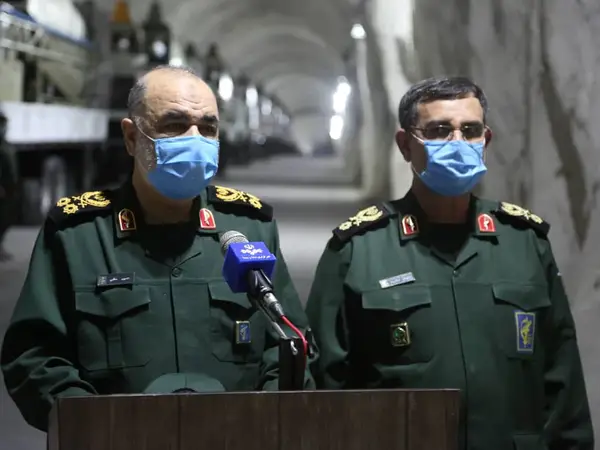A major leak of secret briefing papers related to the IRGC has stirred a big controversy within the Iranian regime, leading to the arrest of a loyal official.
Last week, Black Reward, a hactivist group released tens of files containing IRGC-linked Fars News Agency's exclusive security briefings for the Guard’s Commander Hossein Salami, compromising some closely held secrets.
One immediate victim was Abbas Darvish-Tavangar, a long-time hardliner media man and analysts who was the second in command at Fars.
One of the outlets that published the files for the public, the online Iranian Studies Library, noted that the security briefing bulletins were prepared exclusively for Salami by a team headed by Tavangar. Individual bulletins were prepared in between 120 to 140 pages daily.
As pointed out by an insider commentator Abbas Abdi, the agency came up with conflicting explanations including denying the existence of the bulletins. "They said the briefings as published contained lies, rumors and inaccurate information. Later they said Salami did not need such information and that they have been prepared by a single rogue element. Some others called the bulletins 'dirty political weapons,' and levelled all sorts of accusations against the bulletins' authors. All that made the matter even more complicated."
Abdi asked a series of important questions. If the content of the bulletins were wrong or if Salami did not need them, why their compilation and publication continued. Does this mean that the news dissemination system is faulty even at such a high level? Also, no matter if the content was true or false, was Salami influenced by the information? The intended audience may have been badly misled by this and other similar bulletins. Have they been the basis of decision making by the intended audience?
If the information was false, did someone deliberately misinform the IRGC commander or the producer of the bulletins simply lacked the editorial judgement and skill for collecting the information? In both cases, using such briefings could have been dangerous, Abdi pointed out.
Referring to the "top secret" classification of the bulletins, Abdi noted that they might have included right, wrong, and unverified information. This does not mean that everything in the bulletins were top secret. But the IRGC assigned the classification to prevent others from finding out its sensitivities and priorities.
Meanwhile Abdi added that the hacking prompted the IRGC to deny the bulletins' contents. He concluded that an organization that is surprised by revelations about its behind-the-scenes operations certainly has a problematic structure.
In another development, conservative commentator Mohammad Mohajeri warned that state officials should treat all such briefing bulletins in a way as if their contents are not true unless it is proven otherwise. He pointed out that false information may be deliberately put at officials' disposal to mislead them.
Mohajeri also pointed out that some of the contents of the hacked bulletins are half-truths and half lies, and this is even worse than giving false news to someone. However, considering Mohajeri's background as one of the former editors of the ultraconservative Kayhan newspaper, and his links to the core of the regime, his comments may be an effort at damage control.
On the other hand, Mohajeri called for an end to the publication of similar bulletins, calling them "biased," although he also opined that the briefings could be helpful if they were authored in a professional way. He said bulletins were being prepared and disseminated to officials for at least thirty years now, and some of them are utterly created to channel their audience's behavior and decisions in a certain direction.
